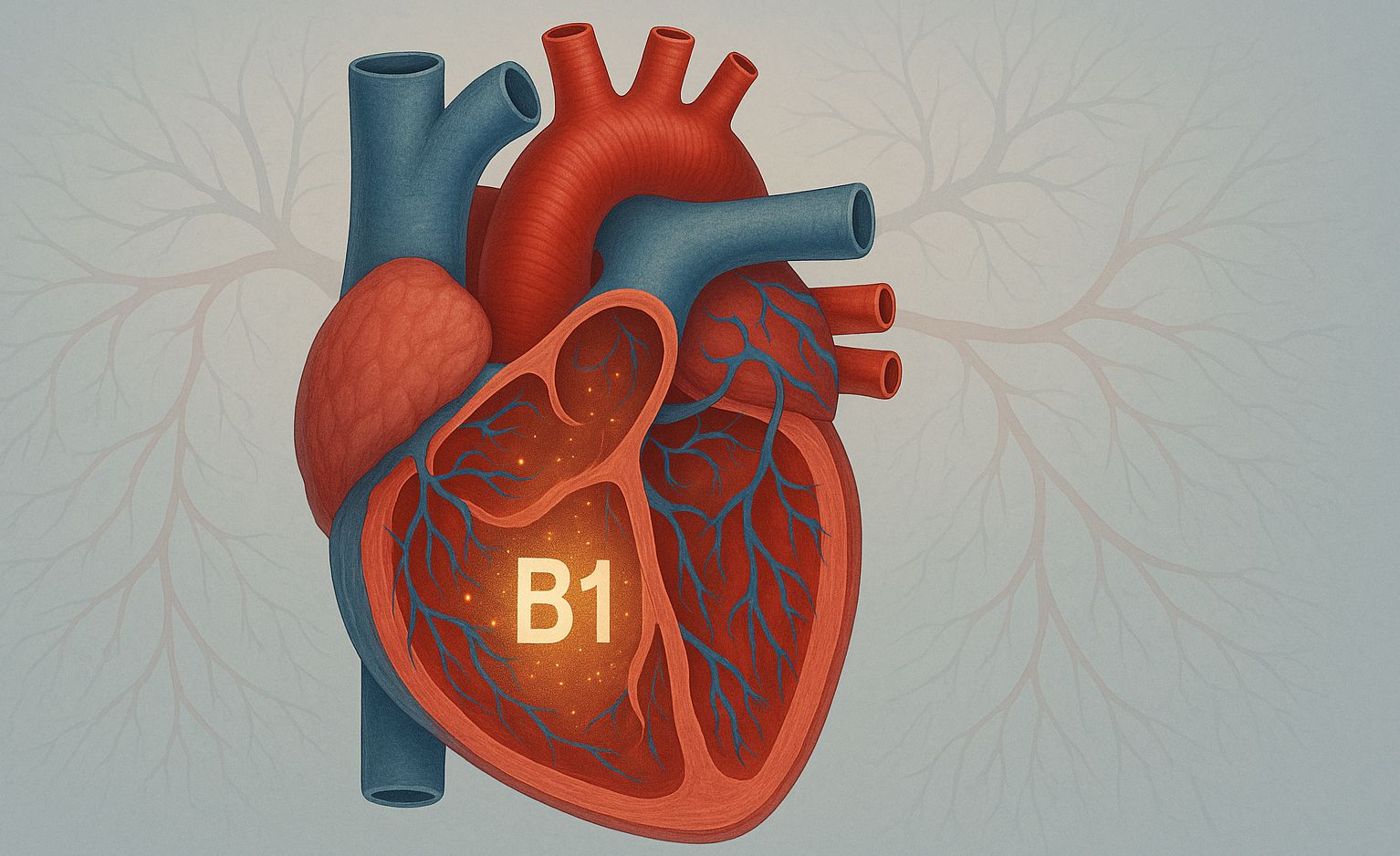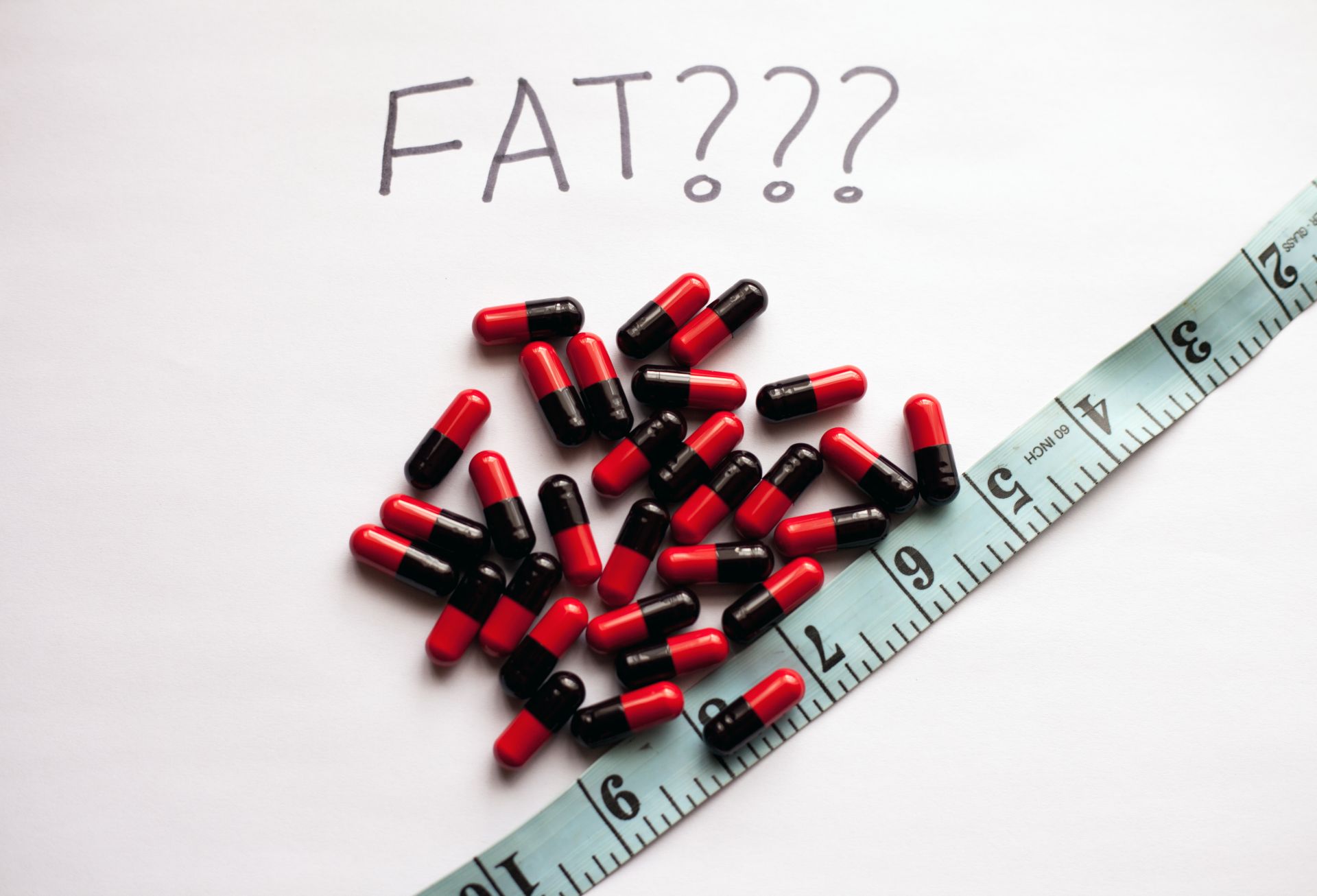Vitamin B1 and the circulatory system - what are the relationships?

First among the B vitamins - thiamine. It hides somewhat in the shadow of such stars as folic acid and B12, but it is no less important for our health. It contributes a lot to the functioning of the energy economy, heart and nervous system, so it should not be forgotten. Find out how vitamin B1 works, how it affects the circulatory system and what foods to look for it in.
- What is vitamin B1?
- Vitamin B1 for the circulatory system
- Vitamin B1 deficiency
- Natural sources of vitamin B1 in food
What is vitamin B1?
Vitamin B1 is thiamine(eng. thiamine), and it was discovered as early as 1911. It is one of the soluble vitamins included in the B vitamin complex. Diseases associated with its deficiency were noticed as early as the 10th century in China, due to that nation's specific diet, with a high proportion of refined rice. The exact structure of thiamine was identified in 1933, and its first synthesis was carried out in 1936. Research on thiamine has a long history, as it is one of the first vitamins ever discovered.
Thiamine, when assimilated, converts in the body to its active form, thiamine pyrophosphate (TPP). As a coenzyme, it participates in the catabolism of carbohydrates and amino acids. Practical properties of vitamin B1 are mainly maintaining:
- normal heart function,
- energy metabolism,
- efficient functioning of the nervous system,
- normal psychological functions.
In supplements, we see vitamin B1 mainly in two forms:
- thiamine mononitrate,
- thiamine hydrochloride.
In Poland, the permissible daily dose of thiamine in dietary supplements is 100 mg, but therapeutically higher doses have often been used in clinical trials.
Vitamin B1 for the circulatory system
Thiamine deficiency is not only a common symptom in patients with cardiovascular disease, but may also play a role in the development and prognosis of these disorders. Screening for thiamine deficiency is worth considering in patients with cardiovascular disease. Including vitamin B1 supplementation in patients and at-risk individuals can be a very useful solution.
Basically, thiamine helps the heart function properly, and its deficiency leads to accelerated heart rate and even increased heart size. We all know how important this organ is, so it is not worth neglecting an adequate supply of thiamine in the daily diet.
Quite a lot is known about the beneficial effect of thiamine on disorders preceding the development of atherosclerosis. Disruption of the lipidogram ratio (too much LDL, not enough HDL), inflammation of blood vessels and impaired endothelial function - all these processes are dependent on the availability of thiamine and can be supported by supplementation or increasing the amount in the diet.
Vitamin B1 also has a pronounced effect on cerebral blood circulation. It is known to improve the condition of patients after an ischemic stroke. In this context, the mechanisms of action are not yet completely understood, but it is likely that the effect of thiamine on endothelial function in the brain plays a major fiddle.
Inadequate availability of thiamine promotes metabolic disorders that are closely related to circulatory dysfunction. These mainly involve dysfunctions in the process of insulin production and sugar metabolism, with an increased risk of diabetes and obesity.
Vitamin B1 deficiency
Thiamine deficiency gives mainly neurological symptoms. Profound deficiencies of this vitamin result in beri-beri disease, in which nerve cell and muscle disorders occur. Symptoms include general weakness and body aches, as well as circulatory disorders.
A strong predisposing factor for thiamine deficiency is alcohol abuse. This leads to Korsakov psychosis or Vernicky encephalopathy. Another common factor that increases the risk is the use of diuretics.
Thiamine deficiency increases the risk of a variety of cardiovascular diseases, dyslipidemia, chronic vasculitis, myocardial infarction, heart failure, obesity, type I and II diabetes, depression.
Natural sources of vitamin B1 in food
Abundant sources of thiamine in the diet are: grain products, meat (beef and pork), nuts and seeds, yeast.
Poor in thiamine for this are: refined rice, refined wheat flour, milk, vegetables and fruits.
It is worth remembering that intensive heat processing degenerates the thiamine contained in food.
Sources:
 ⮜ Previous article
⮜ Previous article
Tart cherry extracts and juice as a supplement for muscle pain and better sleep
 Next article ⮞
Next article ⮞